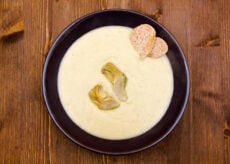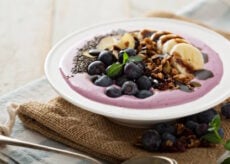8 Super Healthy Drinks (and 4 You Need to Avoid)
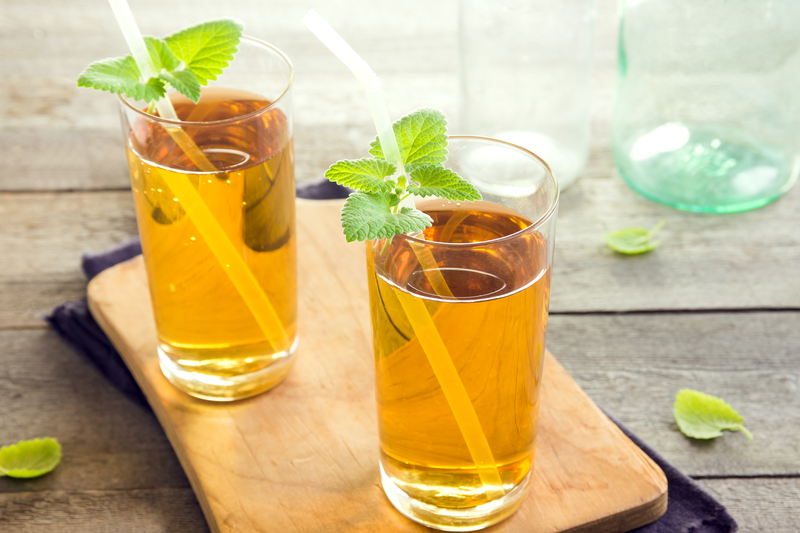
Eons ago, the only beverage choice was water and maybe some sort of herbal tea. Today, we have a plethora of options when it comes to quenching our thirst.
From morning coffee or tea to milk with a meal (especially for children) to flavored bubbly waters to full-sugar and diet soft drinks to energy drinks, alcoholic beverages, juices, sports drinks, kombuchas, and more. All available in a dizzying array of flavors and colors to attract the eye and imagination. Blood orange lime? Dragon passion fruit? Your taste buds can travel the world from familiar favorites to those more tropical and exotic.
Of course, it comes as no surprise that some drinks are significantly healthier than others. Some should be avoided completely, while others are super healthy. With so many options, what should you choose?
Super Healthy Drinks
1. Water
When you’re thirsty, there’s no better choice than plain old water. Whether you are getting the clear fluid from the tap, bottle, or can, you’re making the best choice possible.
For those, however, who don’t always love the taste of water, what can you do? A simple tip for adding refreshing flavor is to add sliced fruit, vegetables, or herbs to a pitcher of water and let it sit for at least 15 minutes in the fridge. You can add anything from lemons and limes, berries of every variety, cucumber, mint and more.
2. “Enhanced” Water
What if you’re away from home or just don’t have time (or energy) to infuse your own water? You could still add your fruit to your water bottle to take with you, but the flavor likely won’t last past the first refill. Fortunately, there are now tasty to-go options to enhance the flavor of water (and perhaps even give it a boost).
As always, you’ll want to watch for added sugars, artificial flavors, colors, and sweeteners for any water enhancers. You might also want to look for ones that add more than just flavor—like added electrolytes and B vitamins.
Our top choice is BioTRUST’s new Mojo H2O, which comes in two yummy flavors: mandarin orange and strawberry watermelon. As a bonus, they also provide B vitamins and electrolytes to support optimal hydration, energy, and metabolism. They’re perfect for a hot summer’s day, during a challenging workout, or any time you need to hydrate.
3. Apple Cider Vinegar or Lemon Water
Another simple way to give your water a boost is to add either freshly squeezed lemon juice or a tablespoon of apple cider vinegar. Adding either to a cup of warm water may help support better digestion and help wake up your body’s detox system in the morning.
If you’re feeling ambitious, you can increase the antioxidant contents of your lemon or ACV water by adding a dash of turmeric, ginger, cinnamon, or even a pinch of cayenne to stimulate metabolism. You can also choose to stir in a touch of honey to balance out the flavor.
4. Red Drinks
First off, phytonutrient-rich green drinks deserve to be mentioned as they’re an easy way to help supplement your vegetable intake. However, we’ve already talked about green drinks at length.
Now, in addition to green drinks, is a new polyphenol-rich type of drink becoming more and more popular every day. A quality red superfood drink provides a big boost of antioxidants. What’s more, because they typically include beets and other red nutrients shown to support blood flow, they may help increase energy levels, stamina, and circulation. 1,2
While this category of healthy drinks is growing quickly, there are some caveats. Some contain ingredients that provide little effect. Others may even be harmful. Watch for those that are loaded with nitric oxide boosters or caffeine and other stimulants.
And just as some green drinks smell (and likely taste) like the underside of a lawnmower, some reds are gritty, clump horribly, and taste terrible. Others try to cover that up with artificial sweeteners, sugars, and other junk better left out of a healthy diet.
Our favorite red drink is (no surprise) BioTRUST’s brand new Eternal Reds™. With a mix of superfruits like pomegranate, cranberry, blackberry, and beets, it tastes absolutely delicious and is loaded with energizing polyphenols. (In my personal opinion, it’s the perfect drink to power you through a tough workout.)
You can also make your own “red” beverage if you prefer. First, wash and prep your beets before juicing them. Then combine your fresh beet juice with various berries and a dash of pomegranate, orange, or lemon juice. Blend well and serve over ice. You can also juice your beets with an apple, orange, cucumber, parsley, celery, etc. Fresh ginger gives this type of drink a nice finish. (If you don’t have a juicer, you can use a blender to blend your ingredients. Then squeeze the juice through a nut bag. You can save the fibrous pulp to use at a later time in smoothies, muffins, or even soups.)
5. Green Tea
Another super healthy beverage to sip on throughout the day is green tea. This tasty beverage provides natural antioxidants like flavonoids and polyphenols to help protect cells and fight free radicals throughout the body. Some of green tea’s purported benefits include decreased risk of cardiovascular disease as well as some forms of cancer and liver disease, reduced blood pressure, as well as supporting improved weight management, oral health, and brain health. 3,4
If you don’t love the taste of green tea, then feel free to switch it out with white or even black tea as they are also rich in antioxidants. You may also want to try some herbal teas. Mint tea, for example, has been proven to aid digestion and lift energy levels. I have found warm mint tea to be comforting on a cold day, while iced mint tea is refreshing and revitalizing on a hot day.
6. Antioxidant-Rich Smoothies
Another way to quench your thirst while adding in some healthy nutrients is by consuming an antioxidant-rich smoothie. Smoothies are a superfast, convenient way to consume a boatload of health-boosting nutrients. Start with the liquid of your choice (e.g., water or your choice of milk), add a handful of greens (e.g., spinach, kale, chard, romaine, etc.), and then add in some fruit (e.g., berries, cherries, banana, etc.) and your favorite quality protein powder. If you’re looking for something more filling, you can also add nuts or nut butter or chia or hemp seeds. Blend and enjoy for a fast, delicious, convenient, and super healthy meal replacement!
If you’re out and about, don’t just assume the local smoothie store (or grocery store) has a healthy option for you. Many store-bought smoothies are loaded with added sugars and high-fructose corn syrup and thus come with a high calorie cost.
7. Kombucha
This bubbly, somewhat sweet, somewhat tart, somewhat vinegary drink is becoming increasingly popular. But what is it? Kombucha is actually a fermented tea that provides healthy bacteria (aka SCOBY) to colonize the gut with probiotics. It’s also rich in B vitamins and antioxidants. 5,6
As with many beverages, a little goes a long way, and a serving is only 12 ounces per day (though it often comes in 16-ounce bottles). Research is still ongoing to determine how healthy kombucha is, but if you’re looking for something a little different to rehydrate, you may want to try sipping on this unique drink.
Kombucha isn’t right for everyone, though. There have been reports of adverse effects when consuming too much. For example, it can lead to stomach upset or headaches. Also, take care of where your kombucha has been made. Some home-fermented batches have been found to have contaminants. So, it’s likely best to avoid those made by friends or found at farmer’s markets. It’s also not recommended for children, pregnant women, or folks who have compromised immune systems.
Some relatively low-sugar tasty options to consider: G.T.’s Organic Enlightened Gingerade, Health-Ade Ginger-Lemon Kombucha, and Suju Organic Vegan Peach Ginger Kombucha.
8. Milk
Admittedly, there is some serious controversy surrounding milk, especially as it is one of the more common food sensitivities and is obviously an animal product. That said, milk provides carbohydrates, protein, and fat, so it’s absorbed slowly, stabilizes blood sugars, and helps people feel fuller, longer.
You may think only skim or low-fat milk fits into a healthy diet. Surprisingly, however, whole-fat milk appears to provide even greater benefits than low-fat or skim milk. For example, whole-fat milk has also been shown to help us better absorb the many nutrients found in milk, including vitamins A, D, E, and K. It’s also rich in omega-3 fatty acids, especially when you reach for grass-fed, organic milk.
This is definitely one instance where (serving) size does matter. A serving is just 8 ounces and provides 150 calories, 8 grams of fat, 12 grams of carbohydrate (with 11 grams of natural sugars), and 8 grams of protein. However, milk is plentiful in vitamin D and calcium.
If you do find that milk upsets your stomach, or perhaps you’re switching to more plant-based options, there are still some excellent, healthy options such as coconut milk, almond milk, hemp milk, oat milk, and so many more.
4 Drinks to Avoid
1. Soft Drinks
Soda or soft drinks are ubiquitous in our society. A wide variety of flavors and sizes are available to tempt just about anyone with their bubbly, sugary “goodness.” Yet a single-serving (12 fluid ounce) soda contains a whopping 39 grams or 9.3 teaspoons of sugar (often in the form of high-fructose corn syrup). What’s more, in those 150 calories you get zero in the way of nutrients. No vitamins, minerals, phytonutrients. Nada. Zip. Zilch.
So, what about diet soft drinks? At least they aren’t overloaded with sugar, right? Unfortunately, they are still empty of nutrients, and the artificial sweeteners they come with can have some pretty scary side effects. Plus, if you’re drinking sodas, you’re likely skipping healthier drinks like water, which could leave you dehydrated.
What’s more, soft drinks have been directly linked to an increase in obesity. Please skip the soda for one of the healthier drinks above! Or, at the very least, consider sodas an occasional dessert as you do a piece of cake, or cookie, rather than as a daily necessity.
2. Juice Drinks
Well, at least a juice drink provides some nutrition, right? Not so fast. Juice drinks are often just sugar water disguised to look like juice. Their bright colors and fruity scent and flavor do the job well, but there’s little, if any, nutrition to be found in these beverages.
If you want something fruity, your best bet is to just eat a piece of fruit for the filling fiber and nutrients provided. On occasion, you can enjoy a 100% juice such as a tart cherry juice, no-sugar-added cranberry or orange juice. Just remember to keep the serving size in check as a serving of orange juice, for example, is a mere 8 ounces, and that provides 110 calories. It does, however, at least provide nutrients like vitamin C, folate, potassium, magnesium, and it’s a good source of antioxidants.
That said, even pure juices are high in natural sugars and calories, and because they no longer contain fiber, it’s easy to consume a lot, which can lead to blood sugar spikes and crashes as well as weight gain.
3. Coffee Drinks
Who doesn’t love to indulge in the full flavor of a large fancy coffee? Well, anyone who doesn’t want an 800-calorie, 170-gram sugar bomb.
Skip the gourmet shop and create your own healthier coffee concoction at home instead, such as a yummy whipped coffee, collagen-espresso, iced mocha, or iced cardamom coffee.
4. Sports Drinks
While there may be some sports drinks worth considering, many are little more than sugar water with a sprinkle or two of vitamins or electrolytes. Worse, many are just chemical concoctions of artificial flavors and sweeteners and unnecessary additives. For example, many provide a huge dose of caffeine and sugar, which lead to a short burst of energy followed by crashing and feeling like crap soon after.
Buyer beware and check the nutrition panel closely to ensure you aren’t being duped by unfounded health claims on these popular beverages.
With so many healthy drinks to choose from, it doesn’t have to be a hard choice to steer clear of those that are less so. Your waistline and general health will thank you—and your taste buds will have little to complain about.


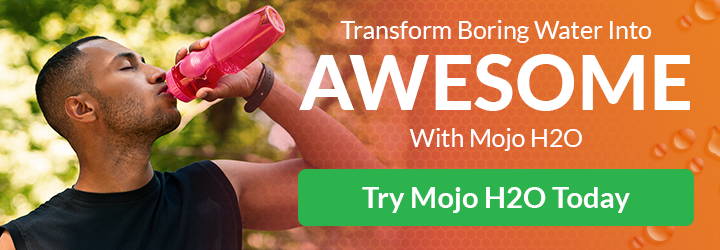
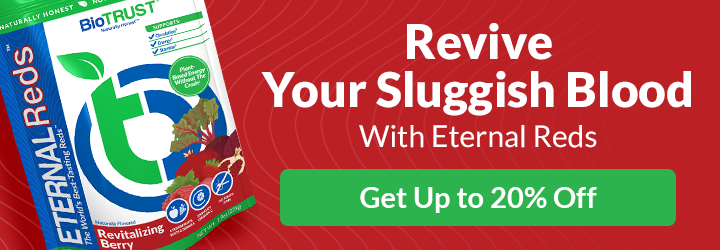


 7 Signs Your Body is Seriously Low on Collagen (not just wrinkles)
7 Signs Your Body is Seriously Low on Collagen (not just wrinkles) Health Expert: "Turmeric Doesn't Work (unless...)"
Health Expert: "Turmeric Doesn't Work (unless...)" 3 Warning Signs Your Probiotic Supplement is a Total Waste
3 Warning Signs Your Probiotic Supplement is a Total Waste